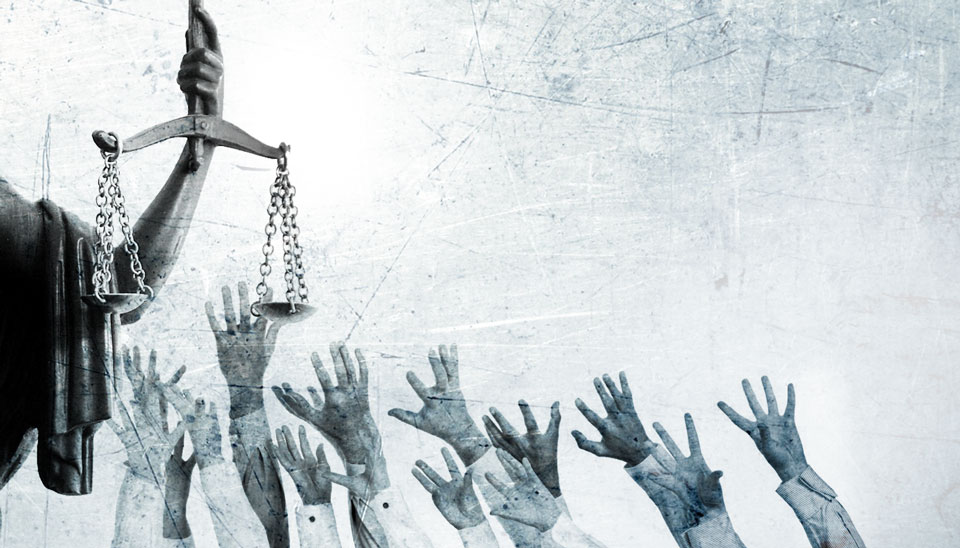KITUI, Kenya – Society has repeatedly and erroneously portrayed persons with mental disability as inherently ‘abnormal’ or ‘deviant.’ This stigmatization justifies mockery, harassment, social isolation, or violence against them. In addition to this, support services for people living with psychosocial and intellectual disabilities are wholly inadequate across the country.
These discriminatory attitudes and false beliefs dehumanize persons with disabilities and create de-facto barriers to accessing different facets of the justice system.
For instance, police or legal counsel may act on prejudice or ignorance when interacting with persons with disabilities, effectively deterring them from pursuing a legitimate claim. Studies also show that judges have relied on stereotypes to make incorrect assumptions about the criminal responsibility or untrustworthiness of persons with disabilities accused or testifying.
In Kenya, most people treat mental disability either as a cultural or spiritual rather than a medical condition. Many victims go untreated because they turn to religious leaders or traditional healers for a cure.
Constitution of Kenya, 2010
The Constitution of Kenya in various provisions, recognises and protects the rights of persons with disabilities from all forms of discrimination.
It defines the term “disability” in Article 260 to include,any physical, sensory, mental, psychological or other impairment, condition or illness that has, or is perceived by significant sectors of the community to have, a substantial or long-term effect on an individual’s ability to carry out ordinary day to-day activities.
In terms of the obligations of the state, Article 21(1) provides that it is, “a fundamental duty of the State and every State organ to observe, respect, protect, promote and fulfil the rights and fundamental freedoms in the Bill of Rights.” Secondly, it provides under Article 21(3) that all State organs and all public officers have the duty to address the needs of vulnerable groups within society, including persons with disabilities.
Stigma has played a significant role in addressing mental health in Kenya. The mental health sector is grossly underfunded and inaccessible to many who need it. There is also a limited number of qualified personnel with relevant skills.
Mathare National Teaching and Referral Hospital, based in Nairobi, is the only public referral hospital that treats mental disability; however, it is not decentralized; hence mentally ill persons from all over the country have to be treated in Nairobi.
This has led to emergence of private mental health treatment facilities which are very expensive. Persons with mental disabilities are more likely to experience legal challenges than persons with no mental disability because of the discriminatory attitudes and societal biases.
In the same breath, persons with mental disability have difficulty resolving or comprehending their legal problems.The Justice System can be a particularly challenging place for persons with mental disabilities because the actors in the justice system tend to act with prejudice when interacting with persons with mental disabilities.
Policies and Strategies To Assess Needs of Vulnerable Group in Prisons
For this reason, more appropriate and effective responses for people in these circumstances, such as tailored interventions, are crucial. The criminal justice chain in Kenya is long with actors at pre-trial and post-trial who come into contact with persons with mental disabilities.
In the post-trial justice chain, detention facilities host prisoners with mental disabilities who form a vulnerable group within the prison population who require specialized care.Moreover, the difficulties people with mental disabilities face in society are magnified in prisons, given the nature of the closed and restricted environment.
In order to ensure the equal treatment of prisoners with mental disabilities and the protection of their human rights, prison authorities need to develop policies and strategies which address the needs of this vulnerable group in prisons.
In line with the United Nations Standard Minimum Rule for the treatment of Prisoners, detention facilities should place prisoners with mental disabilities under the special supervision of a medical officer and provide for the psychiatric treatment of all other prisoners who need such treatment.
In Kenya, the data on persons with mental disabilities in places of detention is not easily and publicly available. Considering their special needs, this oversight therefore means that the prisons are inadequately equipped, in both manpower and finances needed to provide the necessary reasonable accommodation to mainstream the stay of persons with mental disabilities in prison. This oversight also manifests itself in the national statistics on PWDS in prisons.
Against this broad backdrop, ICJ Kenya developed the publication titled: ‘Promoting Inclusion and Responding to Justice Needs for Persons with Mental Disability; An access to justice manual for persons with mental disability.’
The manual provides an overview of the current policy and legal framework for persons with mental disabilities, including regional and international instruments that provide for their rights and outline state obligations.
It also documents challenges faced by persons with mental disabilities in the criminal justice system including the lack of treatment during incarceration. Consequently, the publication makes a recommendation to Kenya Prison Service to provide comprehensive mental health services in detention facilities.
The author Damaris Kemunto,is a programme Officer at ICJ Kenya.







